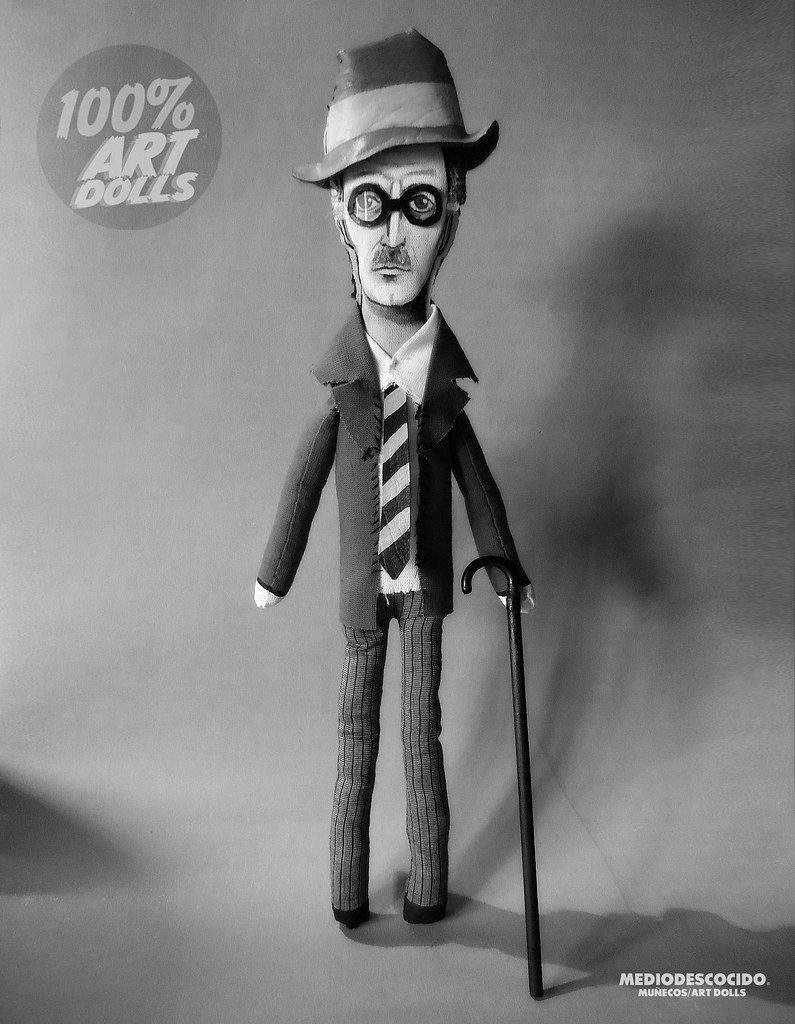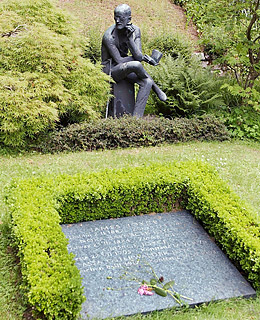Dear Reader,
Our whole writing4godot began really with a celebration of June 16, the day in 1904 on which James Joyce’s book Ulysses takes place. This week, we are celebrating the 100th anniversary of the first printing of the book. What follows will be quirks (now that’s unusual), and big themes and, of course, a sighting of Beckett.

QUIRKS
If you reach as far as the Irish embassy in Athens to celebrate the 100th anniversary of the publication of Ulysses you will learn something about Joyce. First, he wanted the cover of Ulysses to be the same blue as the Greek flag, a color practically impossible to get, and therefore only two copies were printed in time for this auspicious day, February 02, 1922, which was also Joyce’s birthday (born Feb. 02, 1882). Second, he became at least conversant in modern Greek while writing the book which has been called a parallel to Homer’s Odyssey.
Now we go to Ireland because Joyce was Irish after all. But before we get to Ireland, maybe it’s time for the actual book.
THE BOOK
Here’s the first line.
The story follows the Jewish character Leopold Bloom around Dublin. He picks up a struggling artist, a character from an earlier Joyce book. Molly, Bloom’s wife, is at home, about to begin an affair (for reasons which are sad enough).
Edna O’Brien (Irish) writes in The New Yorker about how Joyce tells his story. “All the standard notions about story, character, plot, and human polarizings are capsized. To each chapter Joyce gave a title, a scene, an hour, an organ, an art, a color, a symbol, and a technique, so that we are successively in tower, school, strand, house, bath, graveyard, newspaper office, tavern, library, street, concert room, second tavern, a lying-in hospital, a brothel, a house, and a big bed.”
The book is considered a brilliant example of modernism because of all the upending, the play with language, the stream of consciousness, and yet the compression of an entire story into a single day. It’s difficult, yes, but it’s funny and sexy and affirming, with many repetitions of the word, “yes,” at the very end.
Here’s why you should read James Joyce’s Ulysses
IRELAND?
Zurich, Trieste and Paris, these were the three cities where Joyce wrote Ulysses.
Reader: What happened to Dublin? I thought the book was about a day in Dublin.
Me: You can take the man out of Dublin, but not Dublin out of the man. To escape the war, he and his wife, Nora, stayed in Zurich, but he pestered all his friends and family for details about Dublin. An exacting man for details. He said in a letter, “I’ve been so long out of Ireland that I all at once hear her voice in everything.”
THE MAN
Born in Dublin, on 02 /02/1882, and educated by the Jesuits; therefore, he was very Catholic, very educated and highly verbal. After completing his book in Paris, where he took up permanent residence, he actually had his book published in Paris by the kind auspices of Sylvia Beach. The author was living in unromantic poverty when Sylvia Beach approached him at a party. “Is this the great James Joyce?” she asked. “James Joyce,” he answered. I like that, don’t you? Meanwhile, in England and the US the book was banned. Too sexually explicit.

Factoid: the author had terrible eye problems and many surgeries.
Factoid: the author died in Zurich after an operation. His wife tried to repatriate him but Ireland refused since Joyce had run afoul of the Catholic establishment. His wife and son are buried with him.
SYLVIA BEACH
Now, Sylvia Beach owned a bookstore, which happened to be called Shakespeare and Company at 8 rue Dupuytren, Paris VI. Joyce took this to be a good omen, Shakespeare being, well, Shakespeare, and therefore good company for someone who set his sights as high as Joyce did. Her bookstore, which is not the same one that carries the name of Shakespeare and Company over by Notre Dame, was part post office, literary salon, even bank. Joyce’s novel had been serialized, at least in part, in a New York literary magazine, but publication was stopped there due to obscenity charges. So voilà! Sylvia Beach, a woman from Baltimore who now reveled in the bohemian life (although she must have had something of a practical bent to keep a bookstore (not to mention Joyce) up and going. And publish him she did, on beautiful paper, including linen, for 66% of the royalties.
IRELAND?
Yes, despite Joyce’s French posh, such as it was, since he was quite the late night carouser, and yes, despite his publication angel in Paris, Joyce belongs to Dublin and Dublin to him. The novel takes place in Dublin on one day, 16 June, 1904, the day that Joyce himself began courting his wife. And that day is a day of celebration in Dublin, yes, and worldwide, for that matter, with pilgrimages to the places found in the novel, along with readings from the book.
Here’s a reading of the last fifty lines of the book, the famous Molly Bloom soliloquy. She holds a world in her hands here, her own world, the world of Dublin, and the world of all of us.
Now imagine the 100th anniversary of Ulysses in Ireland! A week-long celebration, with performances, and music and readings, and, yes, a trip to the pub!
Here’s a photo of an Irish venue in drag as Sylvia Beach’s Shakespeare and Company.

BECKETT AND JOYCE
Here we have some remarks from Beckett in a letter to James Knowlson: “I realized that Joyce had gone as far as one could in the direction of knowing more, in control of one’s material. He was always adding to it; you only have to look at his proofs to see that. I realised that my own way was impoverishment, in lack of knowledge and in taking away, subtracting rather than adding. When I first met Joyce, I didn’t intend to be a writer. That only came later when I found out that I was no good at all at teaching. When I found I simply couldn’t teach. But I do remember speaking about Joyce’s heroic achievement. I had a great admiration for him. That’s what it was: epic, heroic, what he achieved. I realized that I couldn’t go down that same road. (p.47.) Source: Beckett Remembering, Remembering Beckett: A Centenary Celebration: Uncollected Interviews with Samuel Beckett and Memories of Those Who Knew Him, ed. James & Elizabeth Knowlson (London: Bloomsbury; NY: Arcade 2006),
NOW WHAT IS THIS BOOK REALLY ABOUT?
This is a tough question with many theories abounding. Here’s a book review. With Greek ideas of re-incarnation!
Be sure to visit the second Shakespeare and Company now run by Sylvia Beach Whitman, 37 Rue de la Bûcherie, 75005 Paris. She was named by her father, George Whitman, owner of the second incarnation of the immortal bookstore, for our very own Sylvia Beach.